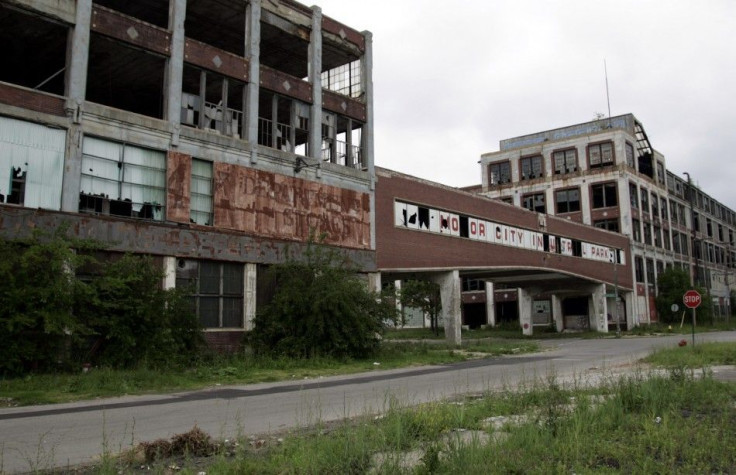Detroit Nears Bankruptcy As Debt Downgraded by Moody’s

Moody's Investors Service has downgraded more than $2.5 billion of Detroit's debt as the city struggles through a prolonged fiscal crisis and Michigan considers installing a financial advisory panel or an emergency manager to keep the state's biggest municipality from bankruptcy.
The downgrades are based on the city's weakened financial position, as evidenced by its narrow cash position, reliance on debt financing to stabilize operations and ongoing labor concession negotiations, Moody's said in its report Tuesday.
Detroit, one of a growing number of U.S. cities and counties facing bankruptcy, is negotiating a consent agreement with the state to prevent the appointment of a financial oversight panel or emergency manager, a common prelude to bankruptcy.
Most bankruptcy filings or defaults in 2011 came from small cities struggling to sustain general government services. They include the burdens of non-debt obligations, including pensions, entitlements, and salaries that have grown out of proportion to the resources available to pay for them, said Anne Van Praagh, chief credit officer for public finance at Moody's.
If Detroit goes into bankruptcy, it will join many U.S. municipalities. Already this year 21 cities have defaulted on a total of $978 million in debt, Reuters reported. Bankrupt entities include Stockton and Hercules, Calif.; Harrisburg, Pa.; and Alabama's Jefferson County, which defaulted in November 2011 on $3.14 billion in bonds.
Detroit is drowning under poor cash flow, declining population and high labor costs, especially pensions for labor union members.
MIchigan Gov. Rick Snyder proposed a consent agreement instituting the oversight panel earlier in March, but the city council has since tried to present an alternative proposal to keep finances under its control, the Detroit Free Press reported.
On March 12, Detroit was projected to have only $42.2 million in the bank, and monthly operating costs are $60 million, according to the Free Press. The city is expected to run out of money by mid-May.
Although city officials oppose state intervention, many Detroiters do not.
Detroit must be rescued and any state aid only will come with a commitment to profoundly restructure city finances and the establishment of a fiscal committee that will ensure future money is spent more prudently. These are bitter pills, but they must be swallowed if Detroit is to survive, read an editorial in Tuesday's edition of the Times Herald of Port Huron, Mich.
While we expect the vast majority of municipal issuers to continue to pay their debts, we also expect a very small but growing number of general government issuers to default on their bonded debts, Van Praagh of Moody's said in a March 7 news release.
Detroit's debt may be downgraded unless the city somehow manages to increase operating surpluses, create sustained economic improvement or secure a source of income that's not dependent on loans -- all of which seems unlikely. A downgrade of Detroit's debt will trigger counter-party swaps and require termination payments over the course of the next seven years, an additional complication for the city's already troubled finances.
The string of municipal defaults have particularly strained insurance companies who have backed municipal bonds.
Municipalities are saying this is what bond insurance is for -- bond holders get paid, Richard Lehmann, publisher of Distressed Debt Securities Newsletter, was quoted by Reuters as saying.
© Copyright IBTimes 2024. All rights reserved.




















